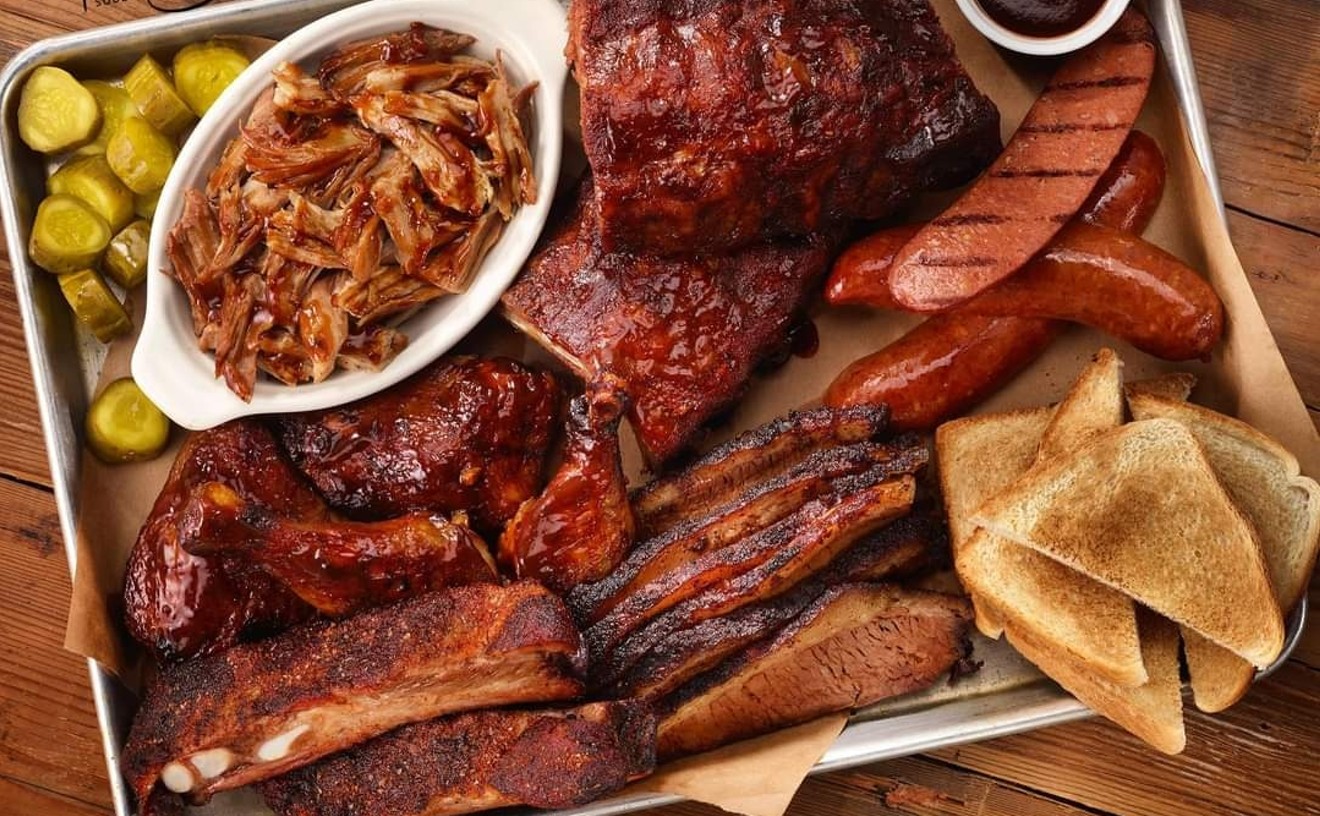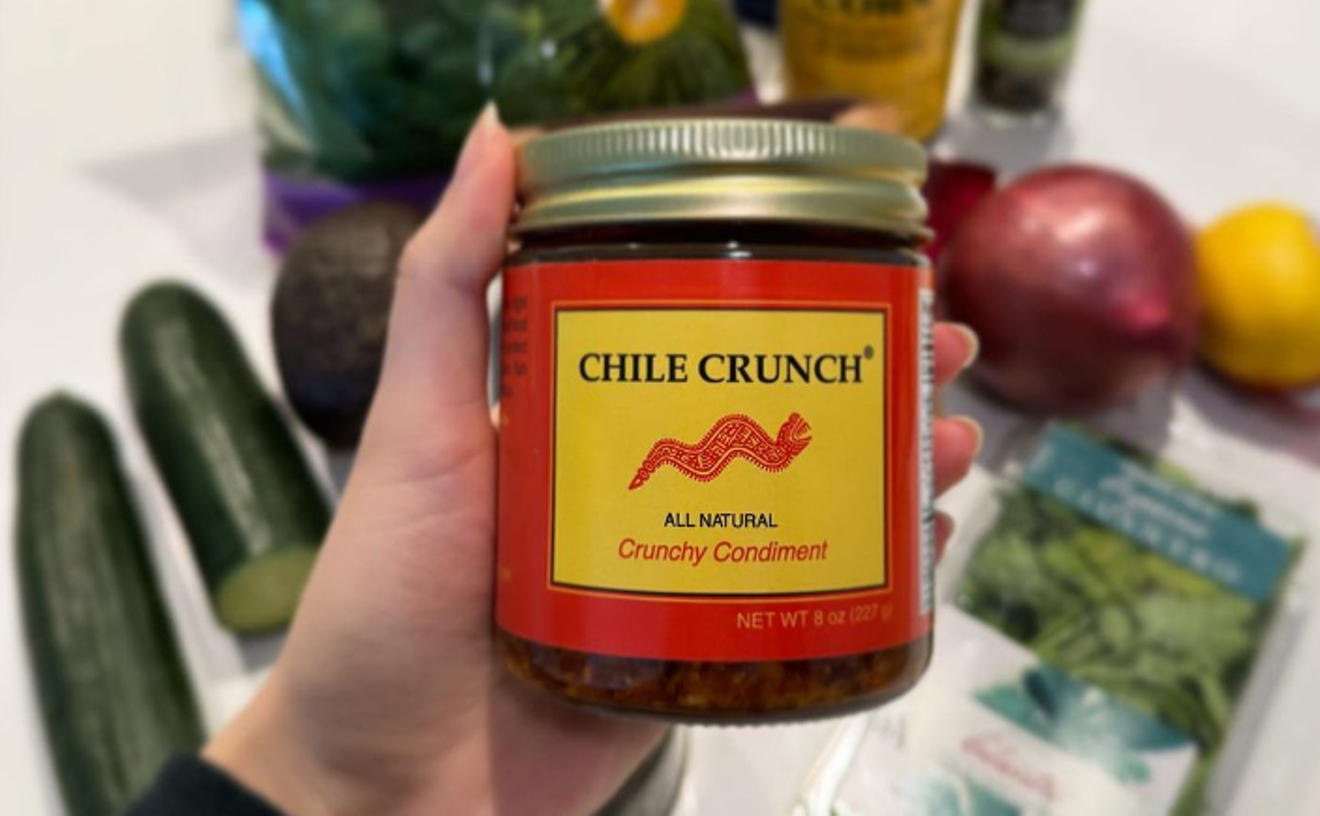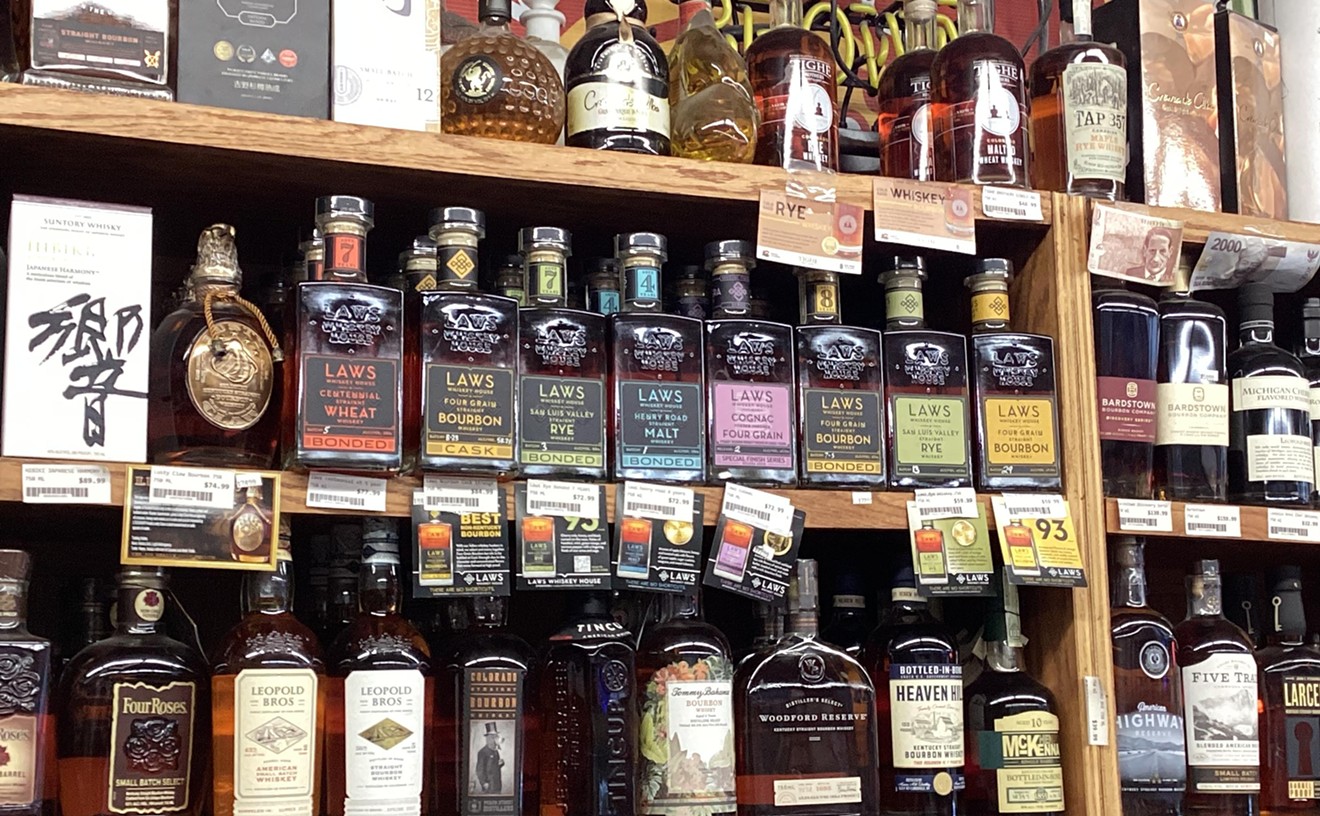See also: Software to sandwiches: Rick Koerner stacks the deck at Stack Subs
That scallop was flown in live especially for the Old South Pearl sushi house. Chef-owner Toshi Kizaki picks up his fish every morning from True World Foods, a specialist in Japanese seafood, in Commerce City. In addition to the items that True World offers, Kizaki's brother Koichi, who lives in Fukuoka on the southern island of Kyushu in Japan, selects fresh catch from the Sea of Japan in the Fukuoka fish market at least twice weekly and sends it along with shipments handled by True World. This effort is part of what makes the restaurant's "market-based menu" possible and allows a Japanese seafood spot in the heart of a landlocked state to maintain its status as one of the top sushi restaurants in the country.Yasu Kizaki, brother to Toshi and Koichi, is the main voice of the restaurant; he takes pride in both Sushi Den's sense of obligation to customers and its need to strive for perfection. "We have a customer who comes in every Friday and spends $200," he says, acknowledging that eating at Sushi Den isn't cheap but adding that Toshi and the entire staff are dedicated to "increasing our standards every day."
That, he explains, is how Sushi Den became a destination restaurant, a place that still has lines out the door almost every day, even after nearly thirty years (the anniversary date is in December of this year). They didn't buy much advertising in the early days, and it wasn't until their fourth year of business that the brothers felt the restaurant had truly caught on with Denver diners. "Advertising starts with one customer," Yasu says, explaining that as long as the staff treats guests with courtesy and as long as the kitchen keeps pushing to be the best, customers will spread the word. "It was like viral marketing -- before people called it that."
In 2007 the Kizakis built a second restaurant, Izakaya Den, on the opposite corner of South Pearl Street, where they featured a tapas-style menu with a focus on high-end sake. After that, they opened and closed Den Deli on the southwest corner of the intersection, and then opened and closed Ototo in the same space. Then, two years ago, in the kind of sign-and-trade deal usually left to NBA basketball teams, the Kizakis acquired the building on the north side of Sushi Den from the Breckenridge-Wynkoop group in exchange for the Izakaya Den space. They tore down the old Pearl Street Grill building and put up a gorgeous new home for Izakaya Den, complete with a retractable glass roof above its second-floor bar and a pass-through kitchen shared with Sushi Den. (Breckenridge-Wynkoop renovated the old Izakaya space and turned it into Session Kitchen.) The brothers still own the Ototo building and are interested in reopening it, but haven't hit on a good concept yet. They don't want to take anything away from regular customers at Sushi Den, Yasu explains.
Continue reading for more conversation with Sushi Den's Yasu Kizaki...
During a wide-ranging conversation, he talks about Japanese cuisine being added to UNESCO's Intangible Cultural Heritage list, his wife's Italian travel company, and his early understanding of the Internet and e-mail as a way to increase the customer base. It's clear he likes to plan, to make deals, but it's even clearer that Japanese cuisine is his passion; he apologizes for talking too much about the history of the dishes the restaurant serves."Ramen is very popular right now, but we know what it's supposed to taste like because we've been eating it since we were kids," Yasu says, adding that Toshi went to Japan about four years ago and worked in a ramen bar for a week to perfect his skills. And then he goes on to explain the history of ramen: how it jumped from China to his home island of Kyushu, starting in the port city of Nagasaki, which in seafaring days was the only port of entry allowed to foreigners. The people of Nagasaki adopted the pork-based noodle soup, adapting it to Japanese taste and calling it tonkotsu. From there, ramen spread to the rest of Japan, taking on a saltier shoyu broth to fuel the laborers who built Tokyo on what was then nothing but rice fields; in Hokkaido, the colder winters warranted a heavier miso broth that often also contains corn. Always aware of the restaurant scene in Denver, Yasu notes that Sushi Den's ramen noodles come from the same source that twelve chef-owner Jeff Osaka will be using in his soon-to-open ramen house.
Invariably, the conversation returns to sushi. Yasu explains that eating raw fish with rice developed as Tokyo was being built. Rice, heavily cultivated in the region, and fish from Tokyo harbor both became more available once the population of the city grew big enough to support both industries. He points out that Sushi Den serves Edo-style sushi called zuke (wrapped in kombu seaweed and marinated in soy) and aburi (like that scallop -- seared briefly over coals but still essentially raw). Both were methods of preserving the fish in a period before the invention of refrigeration, he explains.
At Izakaya Den, and in the tiny Denchu private room (where guests can order "omakase" -- leaving the menu to the chef's whim) at the back of Sushi Den, Toshi has created a menu of small plates (for which the restaurant is named) common in Japan but mostly adapted to American tastes. While french-fry-sized whole fish flash-fried with eyes, fins and tails intact may be at the limit of what most Denverites are willing to try, Yasu says that Japanese customers order more traditional izakaya, like varieties of dried fish, squid intestine and fish heads -- one of his personal favorites. He also talks fondly of the part of the octopus between the head and the arms that is the most tender but contains small pieces of cartilage-like material. These types of dishes wouldn't sell well with Americans, he concludes, because Americans don't like to eat around small fish bones and other parts.
Live abalone, though, is in high demand, even with his non-Japanese customers. "We had six orders of abalone, and one customer ordered four of them," says Yasu. The customer had seen a tweet from Sushi Den announcing the shellfish and had come right in, paying $18 for each order.
Despite the cost, Yasu says his customers expect -- and deserve -- the best. With a transcontinental network of seafood suppliers, a highly trained staff and an emphasis on perfection ("We can never be clean enough," he insists), the Kizaki brothers have managed to keep the Den brand on the forefront of the Denver food scene and in the minds of diners. And with each passing month, they continue to offer more of what they think customers want, whether it's weekly sushi classes, limited-seating special dinners (like an upcoming izakaya seating for thirty people that's already sold out), sake seminars or even guided tours of Japan.
Of course, these events aren't cheap, either, but they're a smart way of keeping the most loyal customers engaged. After nearly thirty years, those lines outside Sushi Den show no signs of shrinking any time soon.
Follow @CafeWestword











